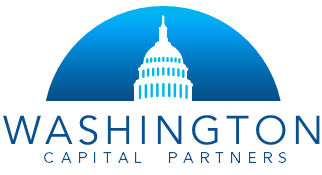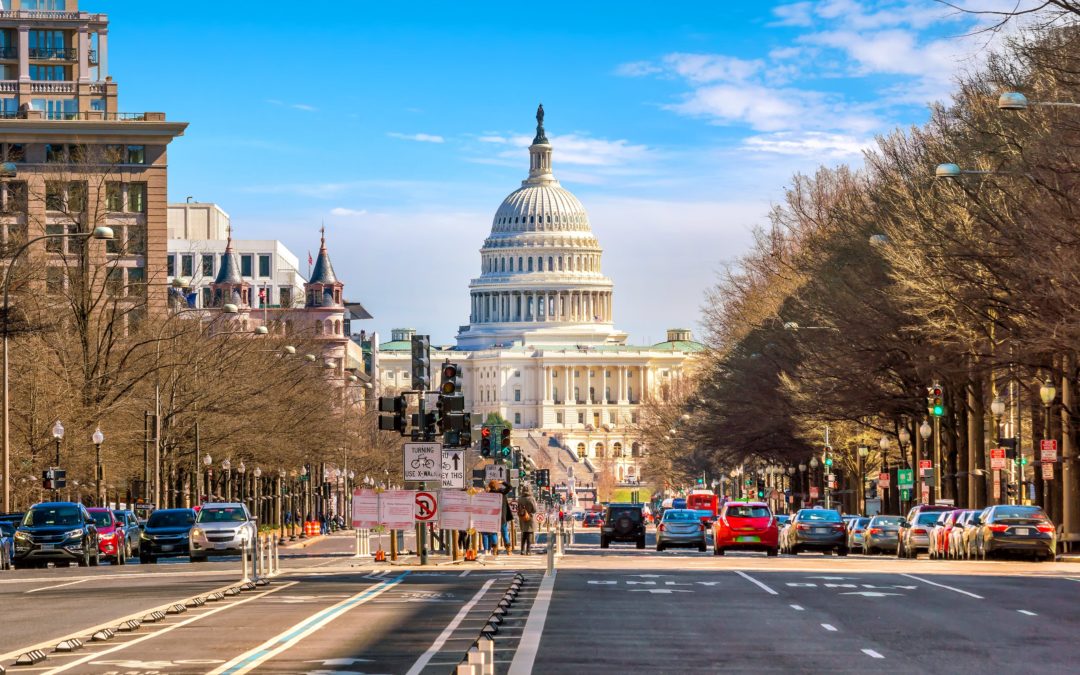In today’s post, you’ll learn about the new “Airbnb Law” in DC restricting short-term rentals.
Is this the end of Airbnb in DC?
Not Exactly – even with the limitations, there’s still a way to produce income.
Washington Capital Partners has funded over $1 Billion in investment projects throughout the DMV area. Our clients love us because we value transparency, speed, and local expertise that provides a high-quality lending experience.
So, let’s explore the new law and show you how to maintain your rental income.
The “New” Law
In April 2022, D.C. will start enforcing a three-year-old law that restricts short-term rentals booked on platforms like Airbnb and Vrbo.
Why now?
Actually, this legislation was passed in 2018, but enforcement was delayed due to heavy opposition and debates between Airbnb/vacation rental companies and the hotel industry.
But, in January 2022, DCRA announced that it would finally begin enforcing the law.
DC is not the only one.
Similar laws restricting and regulating short-term rentals have been adopted throughout the Washington region, including in Alexandria, Arlington County, Montgomery County, and Fairfax County.
What is a Short-Term Rental?
Airbnb and VRBO are two of the most popular platforms for short-term rentals.
In DC, Airbnb has become the most popular method for vacation renting and short-term rentals.
A vacation rental is a type of short-term rental that allows a host to rent a space in a property deemed as their primary residence without being present on the property, e.g. use of the entire home. Cumulatively, vacation rentals cannot exceed 90 nights in any calendar year, and each rental is limited to 30 or fewer continuous nights.
A short-term rental (STR) allows a host to rent a space in a property deemed as their primary residence, e.g. a bedroom within a home. As long as the host is present, there is no limit on the number of stays allowed in a calendar year. The only restriction is the renter can’t stay for more than 30 nights.
Why are they so popular?
In D.C., short-term rentals help homeowners pay their mortgages and can provide twice the amount of rent of long-term rentals.
For visitors, short-term rentals provide more unique options for lodging and more competitive pricing than hotels.
How do the changes affect real estate investors?
Many investors have converted second home properties (properties that are not their primary residence) into Airbnb rentals.
Under the new law, Short-term rental licenses are not allowed for second homes. This means that real estate investors in DC will no longer be able to build a portfolio of Airbnbs in the region.
If the owner is present in the home during the rental (say they post their basement unit for Airbnb), they can host short-term renters as long as they want over the course of each year.
But if they are not present (say they are renting their primary home while they are gone during the summer), those rentals are limited to a combined 90 days each year.
You will now have to apply for a license to operate a short-term rental within the new parameters of the law. Failure to comply with the District’s short-term rental requirements may result in fines of up to $250 for the first violation, escalating up to $1,000 for a third violation.
Before you panic, here’s how to work within the law:
First, get a license. Two license types are available to those wishing to conduct short-term rentals in the District:
- Short-Term Rental License: Allows a host to offer fee-based lodging at their primary residence while the host is present on the property (for example, a bedroom within a home). As long as the host is present, there is no limit on the number of stays allowed during a calendar year; however, each short-term rental stay is limited to 30 or fewer continuous nights.
- Short-Term Rental: Vacation Rental License: A “Vacation Rental” is a type of short-term rental that allows a host to offer fee-based lodging at their primary residence without being present on the property (for example, a full home). Cumulatively, vacation rentals cannot exceed 90 nights in any calendar year, and each rental is limited to 30 or fewer continuous nights.
The total cost for a two-year short-term rental license is $104.50, which includes a $70 processing fee, a $25 endorsement fee, and a 10% technology fee. The overall license cost is in line with or cheaper than other comparable jurisdictions locally and nationally. As an example, the cost of a two-year short-term rental license in San Francisco, California is $450.
Below are the main requirements needed to apply. For the full list of steps to complete these requirements, please visit this page on the DCRA website.
- Proof of liability insurance with a minimum of $250,000 in coverage must be provided – this may be obtained through a rental platform or from an insurance company.
- A Certificate of Clean Hands issued within the last 30 days in the property owner’s name must be obtained from the Office of Tax and Revenue.
- If the rental is a co-op, condo, or if the property is in a community where there is a homeowners’ association, the owner must attest that the bylaws, house rules, or other governing documents of the homeowner/condo/ cooperative governing board or association allow short-term and/or vacation rentals, do not prohibit owners from operating short-term rentals and/or vacation rentals, or that they have received written permission from the association to operate a short-term and/or vacation rental at the address.
Second, get secure the right kind of funding.
While there are no current laws on the books that limit lenders from financing short-term rentals in DC, given the new restrictions on owners, most lenders will update their underwriting guidelines to avoid lending on them. Generally, these lenders will not fund under the assumption that the deal only works as a short–term rental.
Thus, lenders will likely require the loan to be underwritten as a long-term rental in order to offer financing.
What this really means for investors is that if you’re looking for a loan on a property that will be collecting short-term rental income, it needs to make sense as a long-term rental as well.
There is still a great opportunity for multifamily owners who live in the property (also called “House Hacking”) to collect short-term rental income year-round. The downside is that they will not have as many/as flexible financing options to fund the purchase and repair of their properties, as owner-occupied deals are strictly off-limits for hard money lenders.
WCP provides long-term rental loans for any property converting from short-term. A long-term financing solution is typically used to fund the purchase of an investment property that will be leased to a tenant. Investors can secure these loans at a fixed interest rate for up to 30-years, or with 5, 7, and 10-year interest-only options (with optional ARM). To learn more about WCPs long-term rental loan options, click here.
Time to get to work
Getting prepared for the upcoming changes is key. Create a plan, timeline, and list of major tasks needed to transition.
When it comes to investing in short-term rentals in DC, there are now some significant restrictions. However, it is still possible to make money through short-term rentals with some adjustments. Adaptability and creativity are key components of success in an ever-evolving real estate market such as DC.
Sources:
https://fee.org/articles/dc-takes-aim-at-airbnb-hits-existing-rental-industry/
https://dcra.dc.gov/shorttermrentals

